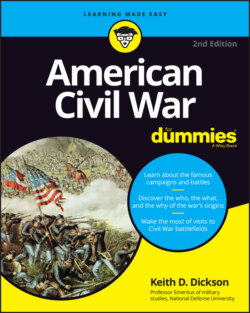Читать книгу American Civil War For Dummies - Keith D. Dickson - Страница 38
The Republican Party arrives
ОглавлениеBy 1856, a new coalition of antislavery Whigs, Free Soil Party members, and Know-Nothings had been formed to become the Republican Party. The catalyst for this action, like that for other new parties, was the Kansas-Nebraska Act. To many observers, the South had won a clear political victory; to forestall any further advances, this new party would base its support on one issue — to keep slavery out of Kansas and all other territories.
One of the most powerful spokesmen for this new party was a former Whig congressman from Illinois, Abraham Lincoln (see Figure 2-1). Lincoln was not an abolitionist; like many Northerners, he felt slavery was the source of all troubles within the country. He expressed it in this way: “The real issue in this controversy — the one pressing upon every mind — is the sentiment on the part of one class that looks upon the institution of slavery as a wrong, and of another class that does not look upon it as a wrong.” Lincoln’s party had no intention of interfering with slavery in the states where it currently existed. The Constitution guaranteed slavery there — it was unquestioned. The Republicans also had no interest in the most radical abolitionist position that demanded Blacks become the social and political equals of whites. In fact, Lincoln expounded the Free Soil Party view that the new territories should be “an outlet for free white people everywhere.”
Hesler, Alexander / The Library of Congress / Public Domain
FIGURE 2-1: Abraham Lincoln, Republican Party spokesman and future presidential candidate.
In the midst of political turmoil, with parties shifting support bases and other political parties disappearing, Lincoln masterfully and most often gave expression to the thoughts and feelings of many moderate Northerners, regardless of party. He soon became the leading spokesman for the Republican Party, traveling throughout the North addressing huge, enthusiastic crowds. By 1856, the year of the presidential election, the Republican Party already dominated most legislatures in the North.
